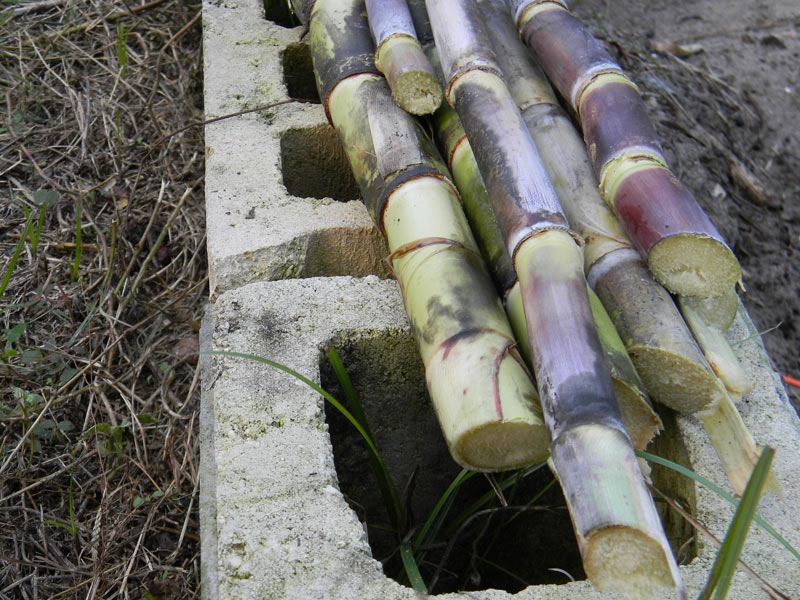Learn How Sugar and Cane Contribute to the Sweetness in Your Favorite Foods
Learn How Sugar and Cane Contribute to the Sweetness in Your Favorite Foods
Blog Article
Why Cane Sugar Handling Chemicals Are Essential for Modern Sugar Refining
The role of walking stick sugar handling chemicals in modern-day sugar refining can not be overstated, as they are indispensable to improving both the effectiveness of extraction and the overall high quality of the last item. Representatives such as phosphoric acid and specific flocculants are employed to remove contaminations, resulting in sugar that not just fulfills consumer assumptions yet additionally sticks to industry criteria.
Role of Handling Chemicals
The effectiveness of walking stick sugar processing hinges significantly on the calculated application of processing chemicals. These chemicals play an essential duty in boosting the efficiency and high quality of sugar extraction and refining. From the first phases of juice removal to the final purification steps, processing chemicals assist in various critical operations.
In the extraction phase, chemicals such as phosphoric acid and calcium hydroxide are employed to maximize the explanation process, aiding to eliminate contaminations and put on hold solids from the walking cane juice. This not only boosts the return however also guarantees the clearness of the end product. In addition, representatives like flocculants aid in the quick settling of contaminations, thus improving the total procedure.
Triggered carbon and ion exchange resins offer to get rid of shade and smell, making certain that the refined sugar meets consumer high quality criteria. Thus, the careful choice and application of these chemicals are vital for accomplishing optimum results in walking cane sugar handling.
Secret Kinds of Chemicals
Cane sugar processing depends on a range of vital chemicals that help with each stage of manufacturing. These chemicals play crucial roles in clarifying, whitening, and cleansing the sugar drawn out from walking cane.
One primary category of chemicals includes flocculants, such as polyacrylamide, which aid in the information process by promoting the aggregation and settling of pollutants. Furthermore, calcium hydroxide is frequently utilized to reduce the effects of level of acidity and aid in the removal of non-sugar elements.
Lightening representatives, such as turned on carbon and sulfur dioxide, are used to decolorize the syrup, leading to a clearer last item. These chemicals aid get rid of shade compounds that might impact the sugar's look and bankability.
Additionally, phosphoric acid works as a pH regulator during the processing phases, guaranteeing optimal problems for the chemical tasks associated with sugar removal and purification.
Other important representatives include edta (ethylenediaminetetraacetic acid), which chelates steel ions that can catalyze unfavorable responses, and salt hydroxide, which assists in pH control throughout the refining procedure. Jointly, these chemicals enhance effectiveness and ensure a high-quality walking stick sugar item.
Benefits for Sugar Top Quality
Often neglected, the use of details processing chemicals significantly improves the overall top quality of cane sugar. These chemicals play a pivotal function in refining processes, making certain that the last item fulfills rigid industry criteria for pureness and taste.

In addition, refining chemicals help in achieving a constant granulation and structure, which are crucial for customer approval. By regulating the formation process, these chemicals guarantee that the sugar crystals create uniformly, bring about a much more appealing product that dissolves well in different applications.
Additionally, the use of these chemicals can enhance the shelf life of walking stick sugar by lessening dampness absorption and microbial development. On the whole, the tactical application of handling chemicals is necessary for delivering top notch cane sugar that fulfills customer assumptions and market demands.
Environmental Influence Factors To Consider

Furthermore, the energy-intensive nature of sugar refining, intensified by chemical usage, commonly results in boosted carbon exhausts. This adds to climate adjustment and elevates problems relating to the sustainability of existing refining techniques. Furthermore, the sourcing of these chemicals may entail methods that endanger biodiversity, such as monoculture farming, which decreases the resilience of agricultural environments.

To alleviate these effects, sugar refiners are significantly checking out lasting alternatives and adopting ideal practices that lessen chemical usage. Executing rigorous ecological monitoring systems can assist guarantee that the refining procedure straightens with ecological standards and promotes biodiversity. Inevitably, a balanced strategy that focuses on both sugar quality and ecological stewardship is important for the long-lasting stability of the sugar industry.
Future Patterns in Refining
As the sugar market comes to grips with the ecological difficulties linked with conventional refining methods, innovative methods are emerging to improve both efficiency and sustainability. One significant trend is the adoption of eco-friendly chemistry concepts, which prioritize making use of safe, naturally degradable processing chemicals. This shift not only decreases ecological impact but likewise addresses customer need for cleaner manufacturing approaches.
One more encouraging advancement is the execution of advanced filtration technologies, such as membrane splitting up and adsorption processes. These techniques enhance the quality and top quality of the sugar while lowering the quantity of wastewater created during refining. Additionally, the integration of digital modern technologies, consisting of IoT and AI, is transforming operational performance by making it possible for real-time surveillance and predictive maintenance, hence minimizing resource description waste.
Moreover, making use of byproducts from sugar refining, such as bagasse and molasses, is acquiring grip. These materials can be transformed into biofuels or value-added products, adding to a circular economic situation within the industry. Jointly, these patterns signal a change towards even more lasting practices that not only enhance functional effectiveness however additionally align with global sustainability objectives, guaranteeing the future viability of sugar refining.
Verdict
Walking cane sugar processing chemicals are necessary in contemporary sugar refining, significantly improving the efficiency and top quality of sugar extraction. The strategic use these chemicals not just enhances the purity and flavor of the final product yet likewise guarantees consistent formation and texture. As the sector significantly focuses on sustainability, the fostering of environmentally-friendly processing representatives is likely to form future patterns in refining, inevitably resulting in better items and expanded life span for consumers.

Ultimately, a well balanced strategy that focuses on both sugar top quality and environmental stewardship is necessary for the lasting viability of the sugar industry.
Walking stick sugar handling chemicals are vital in modern sugar refining, significantly boosting the performance and high quality of Get More Information sugar removal.
Report this page